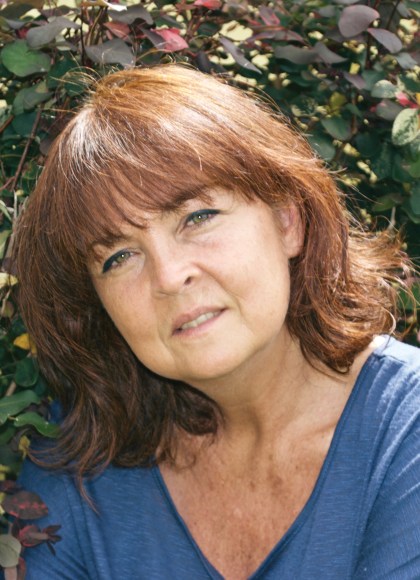By clicking “Accept,” you agree to the use of cookies and similar technologies on your device as set forth in our Cookie Policy and our Privacy Policy. Please note that certain cookies are essential for this website to function properly and do not require user consent to be deployed.
Shadow Child
Contributors
Read by Christine Lakin
Formats and Prices
- On Sale
- May 8, 2018
- Publisher
- Hachette Audio
- ISBN-13
- 9781549168673
Format
Format:
- Audiobook Download (Unabridged)
- ebook $13.99 $17.99 CAD
- Hardcover $26.00 $34.00 CAD
This item is a preorder. Your payment method will be charged immediately, and the product is expected to ship on or around May 8, 2018. This date is subject to change due to shipping delays beyond our control.
Buy from Other Retailers:
For fans of Tayari Jones and Ruth Ozeki, from National Book Critics Circle Award finalist Rizzuto comes a haunting and suspenseful literary tale set in 1970s New York City and World War II-era Japan, about three strong women, the dangerous ties of family and identity, and the long shadow our histories can cast.
Twin sisters Hana and Kei grew up in a tiny Hawaiian town in the 1950s and 1960s, so close they shared the same nickname. Raised in dreamlike isolation by their loving but unstable mother, they were fatherless, mixed-race, and utterly inseparable, devoted to one another. But when their cherished threesome with Mama is broken, and then further shattered by a violent, nearly fatal betrayal that neither young woman can forgive, it seems their bond may be severed forever–until, six years later, Kei arrives on Hana’s lonely Manhattan doorstep with a secret that will change everything.
Told in interwoven narratives that glide seamlessly between the gritty streets of New York, the lush and dangerous landscape of Hawaii, and the horrors of the Japanese internment camps and the bombing of Hiroshima, Shadow Child is set against an epic sweep of history. Volcanos, tsunamis, abandonment, racism, and war form the urgent, unforgettable backdrop of this intimate, evocative, and deeply moving story of motherhood, sisterhood, and second chances.
Twin sisters Hana and Kei grew up in a tiny Hawaiian town in the 1950s and 1960s, so close they shared the same nickname. Raised in dreamlike isolation by their loving but unstable mother, they were fatherless, mixed-race, and utterly inseparable, devoted to one another. But when their cherished threesome with Mama is broken, and then further shattered by a violent, nearly fatal betrayal that neither young woman can forgive, it seems their bond may be severed forever–until, six years later, Kei arrives on Hana’s lonely Manhattan doorstep with a secret that will change everything.
Told in interwoven narratives that glide seamlessly between the gritty streets of New York, the lush and dangerous landscape of Hawaii, and the horrors of the Japanese internment camps and the bombing of Hiroshima, Shadow Child is set against an epic sweep of history. Volcanos, tsunamis, abandonment, racism, and war form the urgent, unforgettable backdrop of this intimate, evocative, and deeply moving story of motherhood, sisterhood, and second chances.
Genre:
-
"In this gripping tale of two sisters, Rahna Reiko Rizzuto probes, with great compassion, the heart-wrenching complexities of identity, memory, history, and survival."Ruth Ozeki, Man Booker Prize-shortlisted & bestselling author of A Tale for the Time Beingp.p1 {margin: 0.0px 0.0px 0.0px 0.0px; text-align: center; font: 15.0px Helvetica}span.s1 {font-kerning: none}
-
"A beautifully woven historical saga wrapped in a page-turning mystery, Shadow Child explores time, memory and identity,shedding new light on the lives of Japanese-Americans, and how trauma can be its own kind of inheritance. Not since Housekeeping has there been a pair of sisters so intricately linked as Hana and Kei, or settings that imprint so firmly on the mind, from the internment camps of WWII to the hidden caves and tropical waters of Hawaii. This is a stunning story of sisterhood and survival, of healing and forgiveness, and how we find our true selves in each other."Hannah Tinti, New York Times bestselling author of The Good Thief and The Twelve Lives of Samuel Hawley
-
"Rahna Reiko Rizzuto's Shadow Child is a beautiful, unafraid novel, a story of how history shapes and fractures identity in family. What is a self when one is a twin? What is a national identity in a time of war? How are we unknowingly shaped by the traumas of our parents? Essential questions are at the heart of Shadow Child, a novel that defies categorization- part historical, part mystery, part family love story-that is on every page masterfully wrought."Victoria Redel, award-winning author of Before Everything
-
"The powerful generational inheritance of secrets, lies, guilt, remorse, and what we do in the name of love is at the heart of this wise, richly layered novel about family and forgiveness."Dani Shapiro, bestselling author of Devotion and Hourglass
-
"Gripping...Bolstered by its convincing historical detail and its satisfying characters...Rizzuto's ruminative portrait of a ravaged family on the precipice of forgiveness leaves a lasting impression."p.p1 {margin: 0.0px 0.0px 0.0px 0.0px; font: 11.0px Helvetica}span.s1 {font-kerning: none}Publishers Weekly
-
"National Book Critics Circle finalist Rizzuto blends historical fiction and mystery into a haunting examination of identity and family in this perfect book club choice."Library Journal (Starred Review)
-
"[An] impressive novel with a fierce velocity....The sisters, deeply linked and then estranged, are vividly realized as they come to terms with their mother, the traumas of what has divided them, and a generation of mysteries."The National Book Review
-
"A good read...Suspense well-paced."The International Examiner
-
"Beautifully written... highly entertaining... Rahna Reiko Rizzuto takes the reader to the dangerous landscape of Hawaii, to the Japanese internment camps during World War and the bombing of Hiroshima and ends the story in the streets of New York."The Washington Book Review
Newsletter Signup
By clicking ‘Sign Up,’ I acknowledge that I have read and agree to Hachette Book Group’s Privacy Policy and Terms of Use







